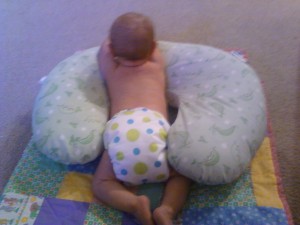Maybe,” [Old Wrinkly] said, “you can train a dragon better by talking to it than by yelling at it.”
“That’s sweet,” said Hiccup, “and a very touching thought. However…from what I know about dragons…I should say that yelling was a pretty good method.”
“But it has its limitations, doesn’t it?” Old Wrinkly pointed out.
–An excerpt from How to Train Your Dragon, by Cressida Cowell
It does. Yelling is effective at pretty much two things: intimidating someone into doing what you say, and making them feel bad. No one, children or adults, likes to be yelled at.
Yelling, while an instinctual stress-reliever, doesn’t do anything to actually educate a person about the point you’re trying to make. I had a teacher once who yelled a lot, and what I remember most about her class is the crummy feeling I had when I was in her room. I remember feeling uncomfortable and sad when she yelled at other students, and I became so afraid to ask questions or talk to her about anything, for fear of her then yelling at me. One time, I thought my book report was late, and oh, the fear I felt then! Just imagining what she would say to (yell at) me turned my stomach into knots. Thinking back on it now, I can’t remember anything about that book report, not even the title of the book, nor any other academic lessons I learned in her class. I actually can’t even remember this teacher’s name; it’s like a traumatic memory, suppressed. (By the way, my book report did not end up being late, so crisis averted. I do remember the joy of that moment of realization.)
As a parent, it’s easy to have my buttons pushed by my kids, yet difficult to remember that yelling doesn’t actually do anything to help them meet their behavioral goals.
“We can’t teach kids to behave better by making them feel worse.” –Pam Leo, Connected Parenting
“Children do better when they feel better.” –Jane Nelsen, Positive Discipline
I am nowhere near perfect at this…the yelling thing. It takes a lot of practice to recondition the way we respond to anger, and I am in the midst of working on this. It’s a many-years-long journey. What I’m working on first and foremost is reconfiguring my “buttons”; trying to take the triggers that usually make me angry and change them so that they, well…don’t. This is a matter of understanding and perspective. The more I understand about my children’s behavior–how their brains develop and why they do the things they do–the less they trigger my anger reflex. And the more perspective I have over “the big picture”–the foundational aspects of raising children that are truly important–the more I realize that in-the-moment yelling doesn’t work toward meeting the long-term goals I have for myself, my children, and our family as a whole.
Yelling at kids doesn’t help them learn a lesson. Just like my book report experience, what kids remember most is the feeling brought on by the yelling; the fear. That’s the piece of information that our brains hold onto and shape our future interactions and behaviors. Even the joy I felt when I realized my report was not late and I was not going ot be yelled at was a positive feeling, but still brought on by fear. Was I then motivated to make extra sure that I was never late on an assignment in this teacher’s class again? Of course. I do think fear is a very effective motivator…no argument from me there. But that’s not the motivation on which I want my parenting, thus my relationship with my children, to be based.
Our most prominent memories stem from feelings around events: succeeding, failing, solving a problem, making mistakes, having fun, going through a difficult time, being held, getting yelled at. After many years, the details of events are likely to become foggy, but the feelings remain. What do I want my kids to remember when they think back on their childhoods? Less yelling and feeling afraid, more understanding and feeling supported. Teaching by yelling does have its limitations. Teaching through connection is limitless.




